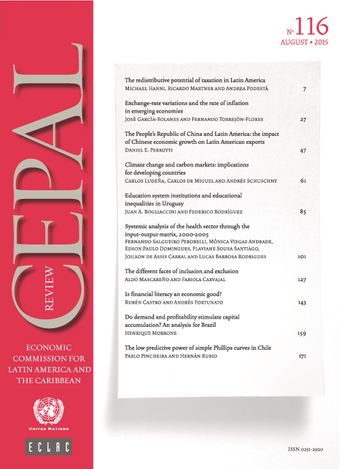-
Is financial literacy an economic good?
- Source: CEPAL Review, Volume 2015, Issue 116, août 2015, p. 143 - 158
- Espagnol
-
- 28 mars 2016
Abstract
Financial literacy (FL) is generally regarded as an economic good which individuals choose whether or not to consume depending on how much of a contribution they expect it to make to the quality of their financial decision-making. This construct has not, however, been tested empirically. In this study we analyse variations in FL on the part of individuals who experience major life-cycle events that show up in the data and that can be assumed to have repercussions on their personal finances. The analysis of a panel made up of approximately 12,000 people indicates that there is a correlation between 13 of the 17 selected life events and financial decisions, but only one of those events (job training) is associated with a change in FL. This evidence casts doubt upon the conceptualization of FL as an economic good and is in line with a series of other studies that, for one reason or another, have questioned the soundness of the current conceptual approach to FL.
© United Nations





